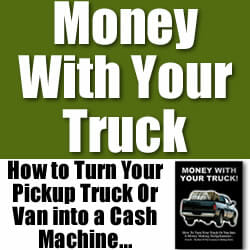 Frugal preppers know all about the benefits of reuse and recycling. It’s not necessarily about Mother Earth—it’s about making sure your basic needs are met and not wasting money on unnecessary goods. Into the middle of this framework should be another highly useful activity—freecycling.
Frugal preppers know all about the benefits of reuse and recycling. It’s not necessarily about Mother Earth—it’s about making sure your basic needs are met and not wasting money on unnecessary goods. Into the middle of this framework should be another highly useful activity—freecycling.
What Is Freecycling?
Freecycling is a formalization of what your grandparents would have called “passing it on.” The difference with the modern version is that your options for passing it on or receiving goods is no longer limited to your immediate circle of family and friends. Instead, thanks to the power of the Internet, you can join hundreds, or even thousands, of like-minded individuals in your area in ensuring that gently-used or no longer needed items find a loving home. Items that can be freecycled include baby clothes, bicycles, spare parts, unwanted household items, or really anything you can think of that someone else might be able to use.
There are freecycling groups around the world, connected through listserves and group mailing lists. Some of the biggest North American groups are The Freecycle Network (www.freecycle.org), FreeSharing (www.freesharing.org), and FreeUse (www.freeuse.org). Each day these groups match people with goods to people who need them. Membership is free, and often only an email address is needed to register, allowing you to preserve your anonymity. Groups are run on a volunteer-only basis, and generally not affiliated with anything beyond their own good cause – sharing! The key for everything is that it is a free gift to the next person who can get some good use out of it.
How Do You Freecycle?
The process for freecycling is simple, and adjusting to the system just takes a few minutes. The first step is to find a group that is organized in your geographic region by searching online and getting yourself registered. While each group may have a few special rules, the main operating system is as follows:
- Users post one of four key messages to the group list. These messages are:
- OFFER: This is an item that is up for grabs
- WANTED: This an item that you are seeking
- TAKEN: This is a message from an OFFER owner letting the group know that the item is no longer available
- FOUND: This lets the group know that WANTED items have been acquired
- If you are responding to an offer, it is your responsibility to promptly pick up the item. There is no delivery in the freecycle universe, and items left sitting are often reposted for giveaway.
- If you offered an item, choose who gets the item based on their stated need in their message to you or on a first-come, first-serve basis.
- After you have picked up an item that was offered or that you posted as a want, be sure to send a thank you to the freecycler who shared it with you.
Are There Freecycle Meetings?
Some freecycle groups do organize regular meetings. Known as “Freemeets” or “FreeFairs” these events are usually held seasonally or annually. Think of them like giant flea markets, only no money can change hands. People are bringing out their unwanted items and just hoping you will come and pick them up so they don’t have to take them home or to the dump. Often, the events will have a potluck or picnic associated with them, allowing you to turn it into a family outing and collecting adventure.
Freecycle Business Ideas
While freecyling is about moving goods freely between individuals, some people have found ways to build freecycle programs into part of their business plans. For example, in one of the North Carolina groups, there was a man who would pick up old and broken dishwashers, washers, or dryers. He would then salvage out the parts or repair the broken machines for a bit of extra cash. Another woman found that she could cut expenses in her home-canned vegetable business by picking up unwanted Mason jars and lids off the freecycle network in her community.
There are many more ideas out there, but there are also significant savings to be had by picking things up off the network. Why spend money on things you don’t have to buy? Check out your area freecycle group and reap the benefits of a network dedicated to passing it on.












